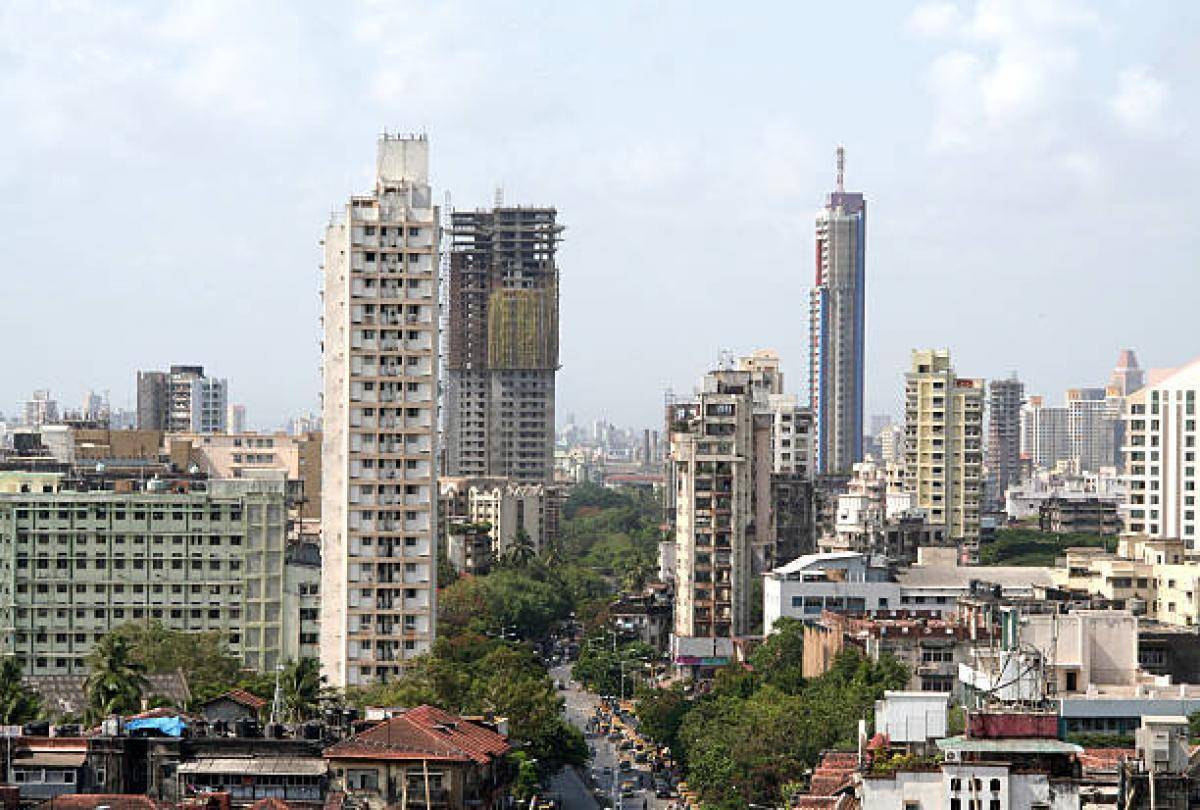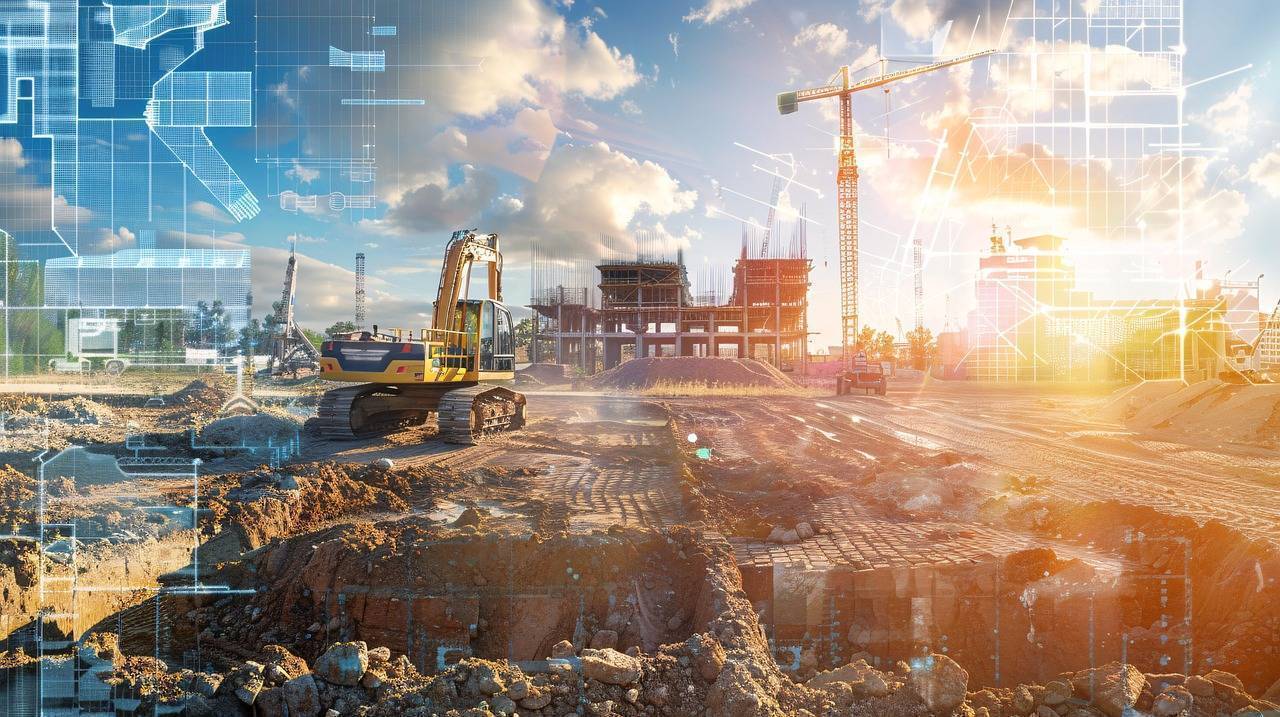Blockchain technology is reshaping India's real estate industry, offering a solution to its intricate procedures, multiple transactions, and diverse stakeholders. In a sector demanding efficiency, accuracy, and transparency, blockchain emerges as the ideal digital revolution.
What is Blockchain?
Blockchain is a system where transaction records are upheld across interconnected devices in a peer-to-peer network.
Imagine a secure chain of transactional records, each stored as an unalterable block in a decentralized system. Blockchain ensures transparency, decentralization, and encryption, making unauthorized modifications challenging. With no single controlling authority, it relies on digital signatures for transaction verification.
Originally designed for cryptocurrency tracking, blockchain's application has expanded into unexpected domains, notably transforming the landscape of the Indian real estate sector.

Blockchain Technology and Real Estate:
Blockchain technology simplifies real estate processes by digitizing documentation, records, due diligence, registration, and closure. Using a secure passcode or private key, buyers can easily access property records, including ownership history and maintenance payments. This digitization streamlines mortgage processes, payment transfers, and property registration, making real estate transactions faster and more efficient.
Here are some broad advantages of blockchain technology
Security Reinvented:
- Blockchain ensures a tamper-proof digital record of property ownership.
- Mitigates fraud by reducing instances of fake property titles and documentation.
Transparency at Its Core:
- Enhances accessibility to property information, including ownership history and transactions.
- Provides a trustworthy and transparent view of data.
Reducing Intermediaries:
- Streamlines the buying and selling process, making transactions faster and more efficient.
- Diminishes the need for intermediaries like lawyers and real estate agents, resulting in cost savings.

Blockchain in India Real Estate (Real Time Implementation)
In India, the government is also looking at the potential of blockchain technology to improve the real estate sector.
As per The Legal 500, The government of Andhra Pradesh has introduced the "Bhoomi" blockchain-based software to enhance transparency and efficiency in land-related transactions. Developed in collaboration with ChromaWay, Bhoomi utilizes a decentralized ledger to secure land records and ownership information, minimizing the risk of fraud. The system facilitates online verification of property titles, reducing reliance on physical inspections and paperwork. Bhoomi's design ensures tamper-proof records and provides instant access to land information, streamlining the process and minimizing manual record-keeping errors. This marks a significant advancement in the real estate sector through the adoption of blockchain technology.
The state of Maharashtra is also exploring the use of blockchain to modernize land property documentation, aiming to enhance trust and reduce fraud. As per CoinGeek, The state's Inspector General of the Department of Registration and Stamps, Shravan Hardikar, revealed that a blockchain pilot is underway, involving banks and mortgage companies. The initiative seeks to address concerns about the authenticity of online documents. Information on all properties will be stored on public ledgers, with documents assigned serial numbers to facilitate efficient searching and enhance security for investors and lenders.
The Road blocks:
While the global implementation of blockchain is still evolving, India's real estate sector operates under state-specific rules, adding complexity to the adoption process. Overcoming challenges requires enhancing operational efficiencies across diverse functional areas and improving computer technology to accommodate blockchain's data and electricity consumption.
- Adaptability: The widespread adoption of blockchain technology faces challenges, particularly in rural India, where adapting to new technologies remains a hurdle, affecting the overall success of the innovation.
- Regulation: Integrating blockchain for smart contracts and title transfers demands the establishment of new regulatory frameworks, calling for substantial legal and government intervention to ensure a seamless implementation process.
- Lack of Standardization: The absence of standardized practices in blockchain technology poses a significant challenge, making it difficult for different systems to communicate effectively, hindering streamlined operations.
- Knowledge Gap: A notable obstacle lies in the lack of awareness and understanding about blockchain among both the general public and real estate professionals, emphasizing the need for comprehensive education and awareness initiatives.
The global experimentation with blockchain positions it as an integral part of our future. The widespread implementation of this technology is inevitable in India, poised to revolutionize various sectors, including real estate. The convergence of blockchain, GST and RERA implementation, and digitization of records promises a transparent and buyer-friendly real estate landscape in India.
Undoubtedly, blockchain holds immense potential for the Indian real estate industry. Realizing this potential requires concerted efforts and collaboration among the government, industry stakeholders, and technology professionals to overcome challenges and usher in a new era of operational efficiency.









.png)